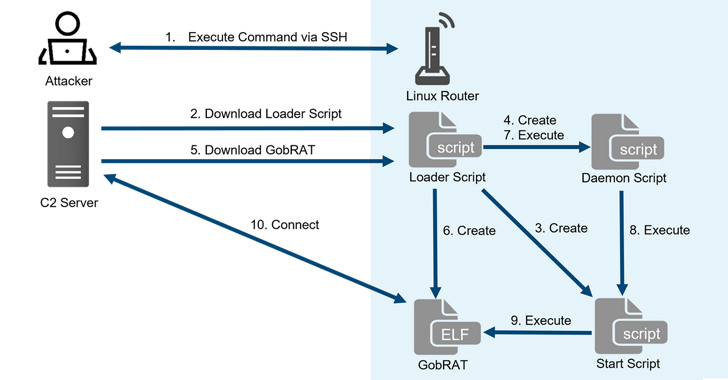Linux routers in Japan are the target of a new Golang remote access trojan (RAT) called GobRAT.
"Initially, the attacker targets a router whose WEBUI is open to the public, executes scripts possibly by using vulnerabilities, and finally infects the GobRAT," the JPCERT Coordination Center (JPCERT/CC) said in a report published today.
The compromise of an internet-exposed router is followed by the deployment of a loader script that acts as a conduit for delivering GobRAT, which, when launched, masquerades as the Apache daemon process (apached) to evade detection.
The loader is also equipped to disable firewalls, establish persistence using the cron job scheduler, and register an SSH public key in the .ssh/authorized_keys file for remote access.
GobRAT, for its part, communicates with a remote server via the Transport Layer Security (TLS) protocol to receive as many as 22 different encrypted commands for execution.
Some of the major commands are as follows -
Obtain machine information Execute reverse shell Read/write files Configure new command-and-control (C2) and protocol Start SOCKS5 proxy Execute file in /zone/frpc, and Attempt to login to sshd, Telnet, Redis, MySQL, PostgreSQL services running on another machineThe findings come nearly three months after Lumen Black Lotus Labs revealed that business-grade routers have been victimized to spy on victims in Latin America, Europe, and North America using a malware called HiatusRAT.
Found this article interesting? Follow us on Twitter and LinkedIn to read more exclusive content we post.
.png)
 1 year ago
95
1 year ago
95 















 Bengali (Bangladesh) ·
Bengali (Bangladesh) ·  English (United States) ·
English (United States) ·